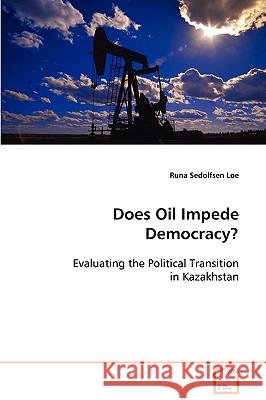Does Oil Impede Democracy? » książka
Does Oil Impede Democracy?
ISBN-13: 9783639080537 / Angielski / Miękka / 2008 / 96 str.
Even if post-Soviet Kazakhstan has obtained an impressive economic growth and has democratic institutions formally present, democratization has been rather unsuccessful, also when compared to quite a few other former communist states. To what degree may the failure of democracy be ascribed to Kazakhstan s economic reliance on oil revenues? This book analyzes the Kazakh political transition since the time of independence in 1991 until 2007. A feature that differentiates Kazakhstan from several other former communist states is its significant petroleum resources. Thus, it is interesting to see how the growth in the extraction of these resources since 1991 may have influenced the country s economy and political developments. At the same time, Kazakhstan shares the problems of democratization with the other post-Soviet states located in Central Asia and Caucasus. It is therefore necessary to consider the region s cultural-historical legacies when attempting to explain the difficulties of democratic progress in Kazakhstan. The analysis should be useful to anyone interested in how resource-led economic growth influences the prospects for democracy in states without democratic traditions."
Even if post-Soviet Kazakhstan has obtained an impressive economic growth and has democratic institutions formally present, democratization has been rather unsuccessful, also when compared to quite a few other former communist states. To what degree may the failure of democracy be ascribed to Kazakhstan’s economic reliance on oil revenues? This book analyzes the Kazakh political transition since the time of independence in 1991 until 2007. A feature that differentiates Kazakhstan from several other former communist states is its significant petroleum resources. Thus, it is interesting to see how the growth in the extraction of these resources since 1991 may have influenced the country’s economy and political developments. At the same time, Kazakhstan shares the problems of democratization with the other post-Soviet states located in Central Asia and Caucasus. It is therefore necessary to consider the region’s cultural-historical legacies when attempting to explain the difficulties of democratic progress in Kazakhstan. The analysis should be useful to anyone interested in how resource-led economic growth influences the prospects for democracy in states without democratic traditions.











